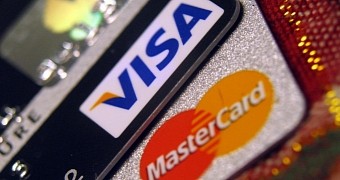A possible scenario for the upcoming future sees a world where PayPal, Visa, MasterCard, and other payment processors may refrain from executing transactions to pirate sites if copyright holders complain and add them to a blacklist.
This type of scenario is currently being analyzed by France's government, as NEXT INpact and TorrentFreak are reporting.
A similar agreement between copyright holders and payment processors is actively being enforced in countries like the US and the UK.
One of the victims of this unofficial arrangement is KimDotCom's Mega service, which PayPal banned at the end of January 2013. The ban was issued after credit card companies pressured PayPal, credit card companies which previously were pressured themselves by U.S. Senator Patrick Leahy, the Chairman of the Senate's Judiciary Committee.
If we've learned something by watching the Web work in the last decade is that if influential countries like the US, Great Britain, France, Germany, or Australia start supporting and actively imposing these kind of measures, this tends to trickle down to smaller nations in a matter of years, or even months in some cases.
Copyright holders are going after the revenue streams of pirate sites
After wasting hundreds of millions in courts around the world, copyright holders are still not seeing the fruits of their labor.
The purpose of this new approach is to cut off revenue streams for pirate sites.
If payment processors refuse to transfer funds from advertising, monthly subscriptions, or user donations, websites where copyrighted material is being exchanged will have a harder time paying their bills. Or that's what groups like MPAA, RIAA, or PRS for Music are hoping for.
Such measures are drastic, but the reasons for having them up are hard to argue down. As long as copyright infringement will be considered a crime, no government or judge will be able to dispute the legality of such agreements.

 14 DAY TRIAL //
14 DAY TRIAL //